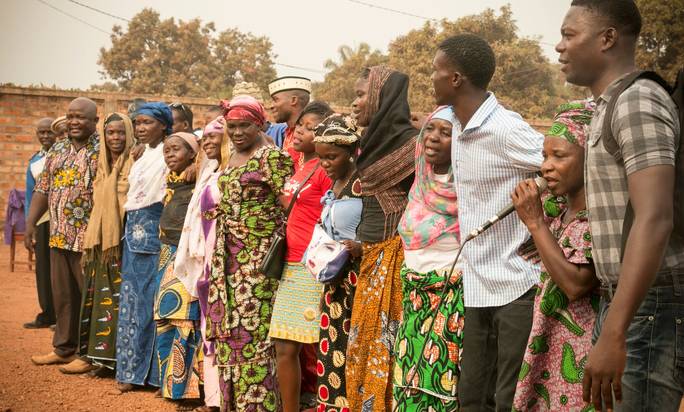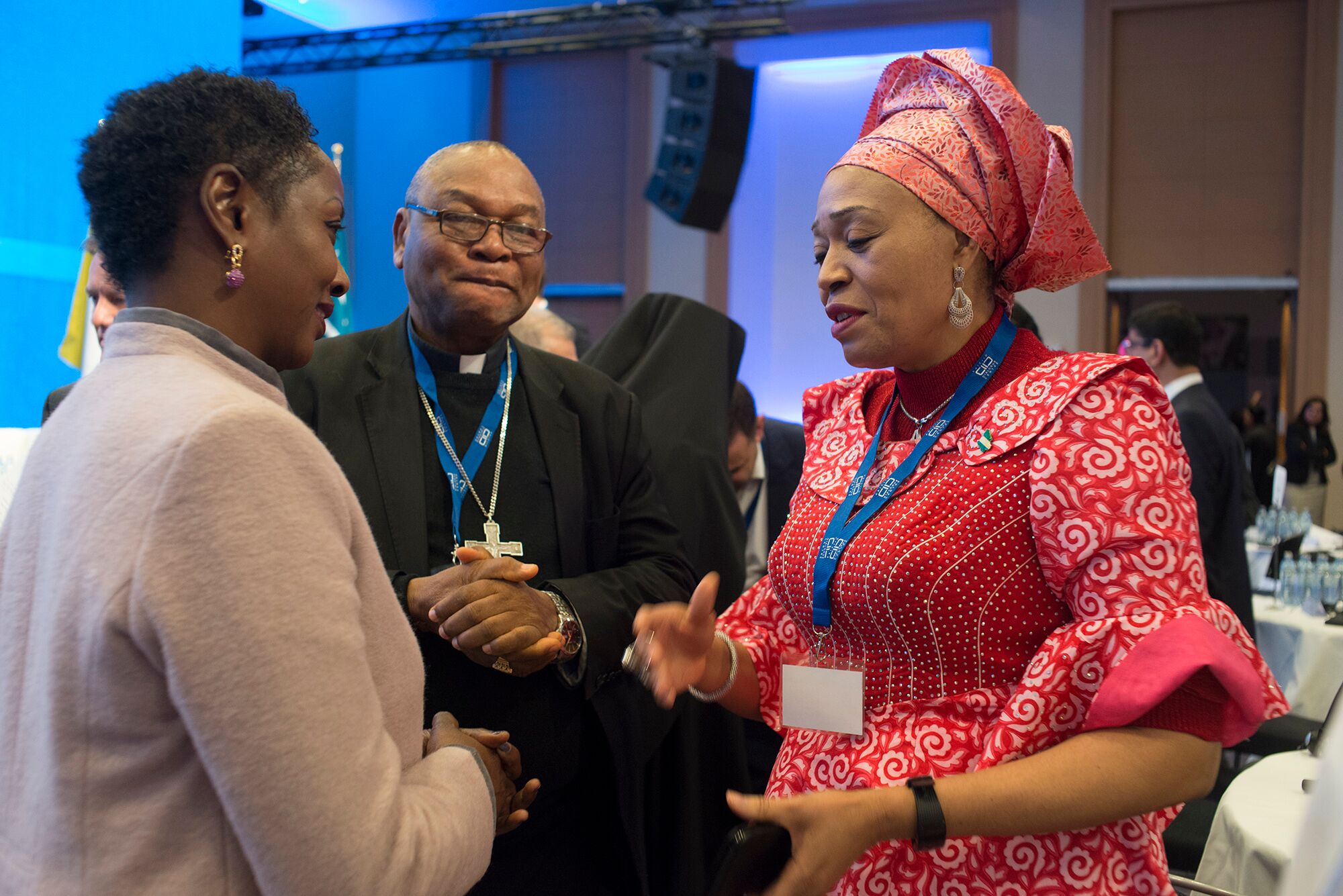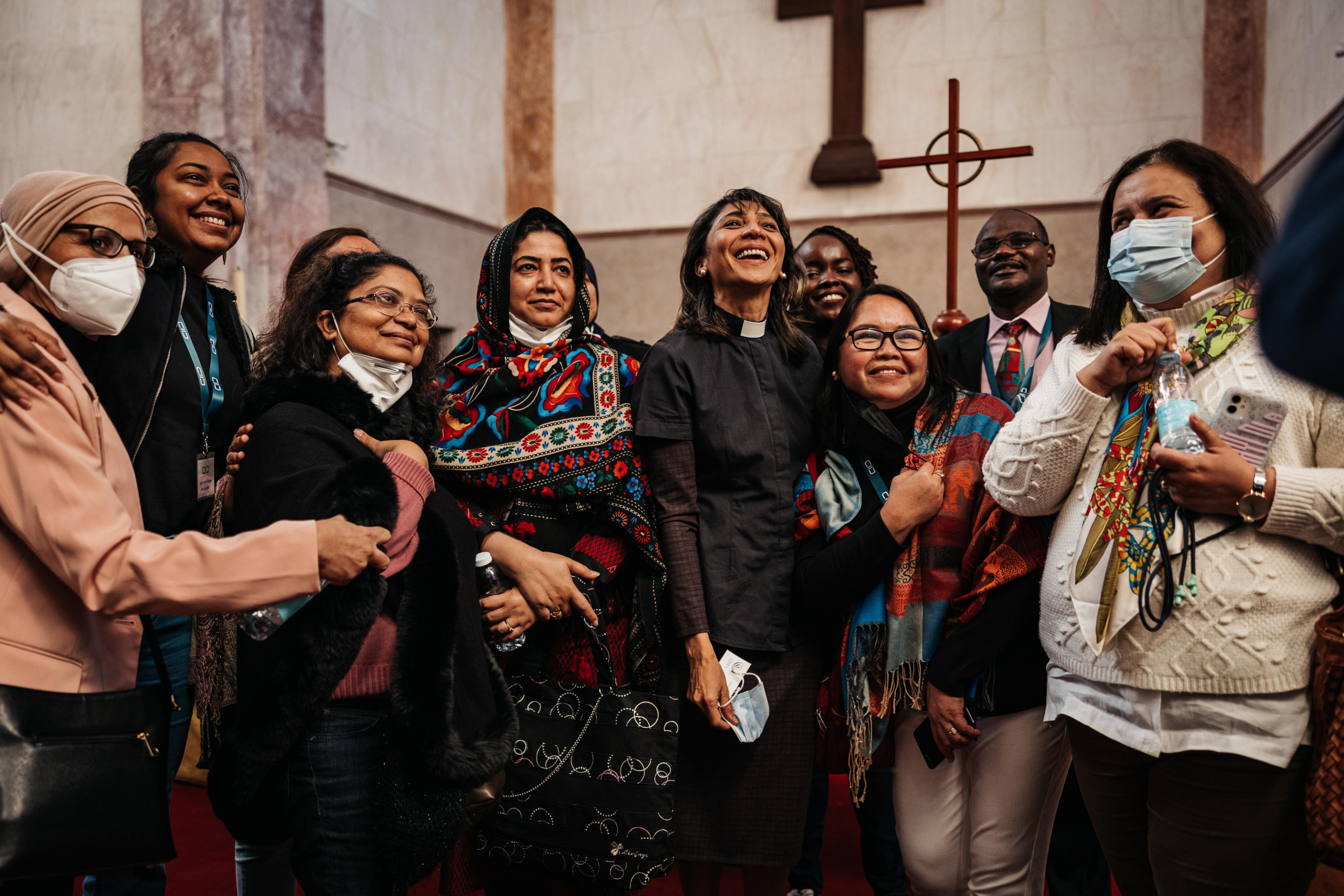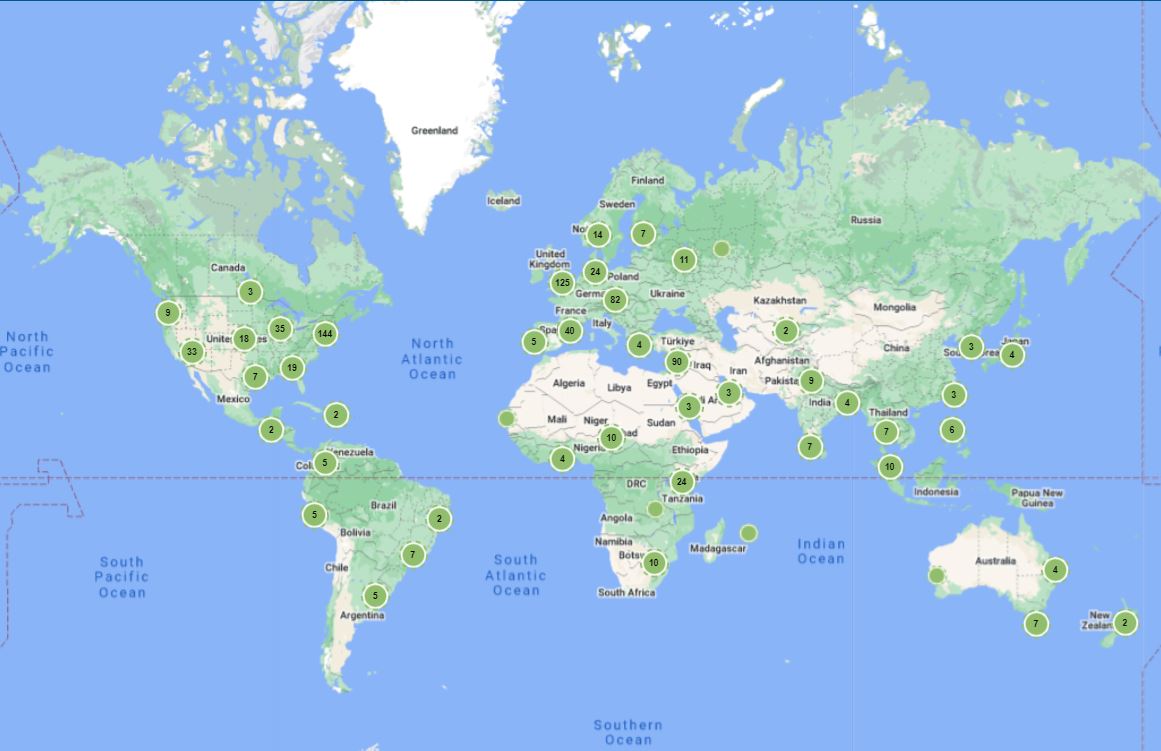Promising Practices
Promising Practices is a collation and expansion of existing documentation on promising practices in interreligious dialogue. Our database offers guidelines and focuses on the concrete implementation of interreligious and intercultural dialogue practices around the world.

Disclaimer:
Through providing different aspects and ideas our aim is to compliment the great work that has been already done in the field of Interreligious and Intercultural Dialogue. Information and field data published in this resource are for informational purposes only, and neither KAICIID nor the Dialogue Knowledge Hub guarantee in any way success of the implementation of the activity.
While we wish all the activities and initiatives featured in this resource could be replicable in as many context around the world as possible, there are often certain limitations, such as the suitability for particular cultures or religious communities. However, there is always room to explore and adjust activities in regards to the community’s environment.
- Global
- New Zealand
- UK
- Advocacy
- Confessional / Religious / Spiritual Activities
- Democracy
- Environment
- Freedom of Expression
- Human Security
- Intercultural Dialogue
- Interreligious Dialogue
- Intrareligious Dialogue
- Peace
- Pluralism
- Shared Human Values
- Social Cohesion & Citizenship
- Social Work & Community Service
- Multireligious
- None
Social Leadership
“Active Citizens” is a social leadership programme launched by the British Council that promotes intercultural dialogue and social responsibility around the world. Through its programme, Active Citizens brings together people with different beliefs and perspectives to learn from and share their experiences with each other. They train participants in the skills and knowledge needed to affect social change in their communities.
- Laos
- Peru
- Tanzania
- Advocacy
- Capacity Building & Empowerment
- Confessional / Religious / Spiritual Activities
- Democracy
- Educational Programmes
- Freedom of Expression
- Freedom of Religion and Belief
- HIV
- Human Security
- Intercultural Dialogue
- Interreligious Dialogue
- Intrareligious Dialogue
- Networking
- Peace
- Pluralism
- Shared Human Values
- Social Cohesion & Citizenship
- Social Work & Community Service
- Women's Rights
- Youth
- Buddhism
- Multireligious
Interfaith Support for HIV Patients
People affected by HIV have to face prejudice and stereotypes and tend to be isolated from the community, especially in religious contexts. Interfaith communities can be mobilized to unite and tackle the issue of HIV, and support patients, therefore including them in their communities, breaking stereotypes, and fostering coexistence. Different religious communities or interfaith groups can work on a solidarity program with a specialized organization, to show solidarity with affected patients.
Support for HIV patients can take the form of a video project that breaks stereotypes around those the virus. It shows people of different backgrounds dealing with the virus, their hardships and the social pain they go through. Sharing different narratives proves how anyone can be affected by HIV and challenges the stigma around it.
A theatre group can also engage people of different religious backgrounds and affected by HIV to raise awareness of their reality through theatre. The aim is to raise awareness of HIV within religious communities, to create safe spaces for affected individuals.
- Guatemala
- Rwanda
- South Africa
- Sri Lanka
- Advocacy
- Capacity Building & Empowerment
- Confessional / Religious / Spiritual Activities
- Democracy
- Diplomacy
- Educational Programmes
- Freedom of Religion and Belief
- Human Security
- Humanitarian Aid
- Intercultural Dialogue
- Interreligious Dialogue
- Intrareligious Dialogue
- Networking
- Peace
- Pluralism
- Shared Human Values
- Social Cohesion & Citizenship
- Social Work & Community Service
- Youth
- Buddhism
- Islam
- Multireligious
Interfaith Conflict Mediation
Interfaith conflict mediation can take different forms, from democratic empowerment in post-conflict environments, to material exchanges and dialogue to reconcile. When a conflict arises between two protagonists that have cultural and religious differences, mediation has to be fair and objective; it should not favor one over the other. Intercultural Conflict mediation ensures that each perspective and belief are taken into account in the mediation process.
The Interfaith Democratic Empowerment is a program put in place by the religious leaders of a given country. They organize constitution reading workshops, debates, give their communities the judicial and advocacy tools to be active citizens in democracy building.
Interfaith material exchanges help establish a dialogue when it is hard for people to have verbal interactions with one another. Different religious communities can decide to work on a solidarity program with a specialized organization. These programs can take place through the year in villages or cities of religious communities or interfaith groups, to show that solidarity is a common value shared by all.
“Religions to Reconcile” uses religion as a means to reconcile and unite people. This initiative implements reconciliation in environments or countries where religious identities often oppose each other and engage in conflict, thus engages them to come together and build a better society.
- New Zealand
- Tanzania
- USA
- Advocacy
- Confessional / Religious / Spiritual Activities
- Democracy
- Educational Programmes
- Environment
- Human Security
- Humanitarian Aid
- Information Distribution
- Intercultural Dialogue
- Interreligious Dialogue
- Minority Rights
- Networking
- Peace
- Shared Human Values
- Social Cohesion & Citizenship
- Social Work & Community Service
- Youth
- Atheism
- Christianity
- Islam
- Multireligious
Meal Sharing
Food is an easy way to foster interfaith dialogue and peaceful coexistence, since it breaks down boundaries between communities and people.
Individuals open their homes to share dinner with 8-12 people from diverse religious backgrounds. During dinner, a trained facilitator leads the discussion and participants are invited to actively listen and share stories. A judgment free zone, these individuals are not expected to be experts in their religious tradition. Another similar practice involves people of different faiths getting together for dinner to welcome refugees in their country and community. Furthermore, people of different backgrounds can also be encouraged to share their dinner with people in need of shelter. Backed by their respective religious teachings, the interfaith group gathers to give assistance to the deprived, which is a value shared by many religions.
Sharing food can also be implemented in a yearly tradition. The Interfaith Food Day is a day in the year to discover diversity within a school or a workplace through food and traditional dishes. This initiative can be carried out for students to take pride in their development in a diverse and international environment while fully embracing their own identity.
- Global
- Guatemala
- Lebanon
- Malaysia
- USA
- Capacity Building & Empowerment
- Confessional / Religious / Spiritual Activities
- Diplomacy
- Educational Programmes
- Freedom of Religion and Belief
- Human Security
- Humanitarian Aid
- Intercultural Dialogue
- Peace
- Shared Human Values
- Social Work & Community Service
- Women's Rights
- Youth
- Christianity
- Hinduism
- Islam
- Judaism
- Multireligious
Interfaith Volunteering
This promising practice happens in multi-religious societies throughout the whole year, and is based on a citywide network of diverse faith communities, which provides resources and temporary housing for families experiencing homelessness. Different religious communities come together to lead cooperative societal projects. They partner up with local authorities to create links between religious communities, through social work. Young people from different religions are encouraged to give their time to a communal service, or get together to cook and distribute food to homeless people, either on the streets or in community centres. Associations are actively working for the development of communities in need, seeking young volunteers from different religious backgrounds who would assist remote and isolated communities. Their goal is to challenge the traditional way of community building and development, by incorporating a social purpose into the practice. Community development has equally important economic and social effects, thus this practice assists precarious villages or neighborhoods throughout the year, and gives them a sense of community that they don’t often have because of their isolation, for
- Cyprus
- France
- Advocacy
- Capacity Building & Empowerment
- Democracy
- Educational Programmes
- Freedom of Movement
- Freedom of Religion and Belief
- Intercultural Dialogue
- Interreligious Dialogue
- Networking
- Peace
- Pluralism
- Shared Human Values
- Social Cohesion & Citizenship
- Social Work & Community Service
- Sports
- Youth
- Christianity
- Islam
- Multireligious
Interfaith Sporting Events
Youth from different religious and social backgrounds can play a sport together, for example football, in mixed teams to showcase interreligious coexistence. This event normally takes place in the environment linked to this sport (ex: on a football field), with a greater impact when it is implemented in neighborhoods of a city where there are interreligious tensions. It is advised to organize such sport encounters on a regular basis (more than only once as a symbolic event), so as to animate the neighborhood and establish long-term bonds.
Moreover, youth of different cultural and religious backgrounds can gather to hike along and across conflictual borders for peace and as a symbol of unity. Through this initiative, the participants can prove that living and walking through the same path regardless of their differences is possible.
- India
- Tanzania
- Advocacy
- Capacity Building & Empowerment
- Democracy
- Intercultural Dialogue
- Interreligious Dialogue
- Intrareligious Dialogue
- Networking
- Peace
- Shared Human Values
- Social Cohesion & Citizenship
- Social Work & Community Service
- Christianity
- Islam
- Multireligious
- Sikh
Interfaith Fund Raising Activities
A religious or interreligious group gets together to raise funds for any interreligious project. It begins with selecting which project(s) will be allocated money and how much. The process of jointly agreeing on which project(s) is/are to be funded and how crosses boundaries between those participating religious communities. It also allows to focus on activities that all parties involved consider worth supporting. Meeting rooms of religious communities or NGOs or individual homes can serve as a meeting place. By taking professional decisions connected to finance, participants practice interfaith engagement, collaboration and agreement and gain more trust in each other. This, in turn, can trigger a chain of solidarity between different faith communities.
- Philippines
- South Africa
- Democracy
- Freedom of Expression
- Freedom of Religion and Belief
- Human Security
- Interreligious Dialogue
- Networking
- Peace
- Physical Infrastructure
- Social Cohesion & Citizenship
- Social Work & Community Service
- Christianity
- Islam
- Multireligious
Interfaith Consultation Network
Several religious leaders of majority and minority groups act as volunteer consultants for national institutions of a certain country or try to resolve conflicts between groups. The individuals and groups will be able to advice on how to approach their communities and transmit knowledge about cultures and traditions in their respective beliefs. Through this, bridges are built and contact among groups and between the executive and citizens becomes more trustful.
- Austria
- Germany
- Italy
- USA
- Capacity Building & Empowerment
- Confessional / Religious / Spiritual Activities
- Democracy
- Educational Programmes
- Freedom of Religion and Belief
- Interreligious Dialogue
- Networking
- Pluralism
- Social Cohesion & Citizenship
- Social Work & Community Service
- Youth
- Christianity
- Islam
- Judaism
- Multireligious
Interfaith Conference
An interfaith organization invites individuals from all faiths and young leaders to attend an interfaith conference. This conference should preferably take place in a country with high religious diversity. This kind of conference should happen on a regular basis to build bridges between religions and to help jumpstart a variety of a variety of interfaith projects.
- Jerusalem
- Lebanon
- South Africa
- Tunisia
- Confessional / Religious / Spiritual Activities
- Democracy
- Humanitarian Aid
- Intercultural Dialogue
- Interreligious Dialogue
- Intrareligious Dialogue
- Peace
- Physical Infrastructure
- Pluralism
- Shared Human Values
- Social Cohesion & Citizenship
- Social Work & Community Service
- Christianity
- Islam
- Judaism
- Multireligious
Interfaith Care Institution
One or more religious communities and/or organizations join forces to build a care center with the aim of treating or taking care of sick people from all different faiths, with a commitment to also foster interfaith dialogue as part of its activities and services. This promising practice can also be done as an ‘add-on’ to existing care institutions. Caring for people regardless of their religion can build relationships and strengthen interfaith relations. The action is designed for any religious organization that has the capacity to found an institution especially considering that specialists/doctors are needed.




